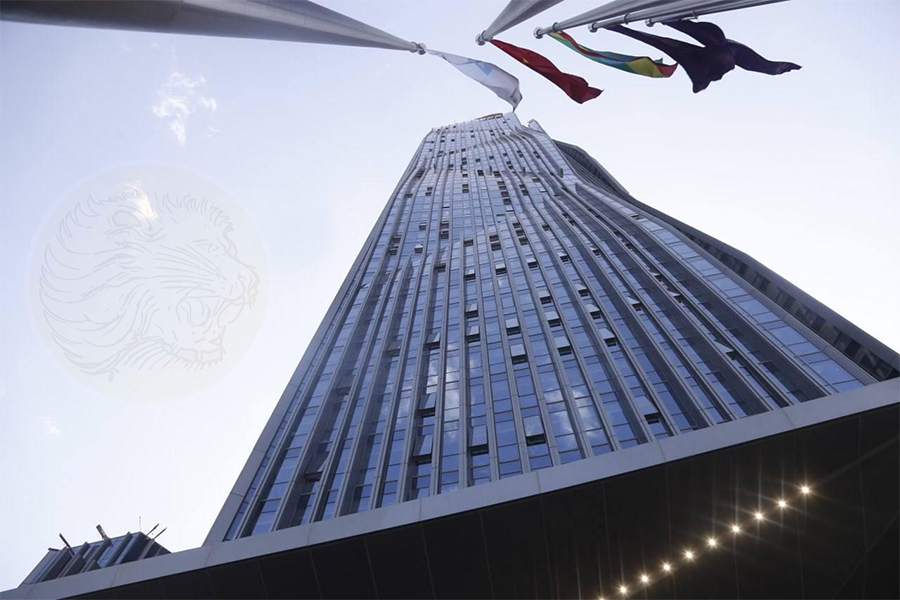
There is a lot of moving involved in a nightmare, but we remain stuck regardless. We later realise after waking up that what we have been running from all along was the nightmare itself, not any one of its components. This is how Sam Mendes’ 1917 unfolds.
The movie won the top awards at the Golden Globes, including for Best Motion Picture. It beat out the likes of The Irishman and Marriage Story. The film has not gotten as much award buzz as the others had, and this was surprising. Snippets of critical and audience comments made it seem like all the movie had for itself was the impressive technical feat of making the whole film look like a single continuous shot.
But this is not true. 1917 is about how emotionally draining and traumatising war is. It is about how we take peace for granted. Watching the movie, I could smell the rotting bodies in the trenches, experience the claustrophobia in the caves and empathise with the unceasing uncertainty of life on the battlefield and the comradeship between soldiers.
I do not pretend to understand what soldiers go through in, not just war, but battle. But movies like 1917 and Saving Private Ryan are the closest we can come in beginning to understand what our brothers and sisters in arms are forced to do and live through, so that I can sit here and blabber about in relative safety.
The film follows two British soldiers tasked with a mission to deliver a message to a battalion that is walking into a German trap. The catch is that in order to reach that line, the two soldiers must trek across a route, including a no man’s land, that they are warned will be all but impossible.
Throughout their journeys, the audience is invited to World War I. It was not as devastating as what came after it, but it was no less horrible.
Take the no man’s land scene for instance. The film offers perhaps the most honest depiction of what these places looked like. The level of terror from seeing so many rotting corpses of humans and horses is only matched by the sheer stress of being shot to death at any time.
But 1917 is not just about scares. It is also about the emotion and sense of alienation experienced during war, something that is hard to show given that most war movies also feel the need to be about feats of bravery in the battlefield.
Fortunately, Mendes has the exceptional gift of guiding actors to fantastic performances. George MicKay and Dean-Charles Chapman, both unknown actors, play the two soldiers. They are not familliar faces. And yet, their innocence and sense of duty becomes evident in the first 10 minutes and we are in complete sympathy with every single one of the decisions they make halfway through the film.
Mendes saves the big name actors, Colin Firth and Benedict Cumberbatch, for supporting roles. The former appears in the beginning of the film, passes the order and is never seen again. We meet Cumberbatch, who plays a colonel leading the battalion, only in the end of the movie. It is an admission that the figures that have cast their shadow over the war, the top generals who give orders and the politicians that plot the war, are familiar while the soldiers that actually do the fighting are faceless, nameless individuals we neither recognise nor give much thought to.
Indeed, I would agree that the gimmick of a continuous shot has taken attention away from the impressive performances that deserved the bulk of the praise.
Long takes are overrated. Serious filmmakers, in their effort to skirt the critical outrage over fast cutting, are fawning over long takes. Although many instances of fast cutting are a sign of a lazy director who did not do his homework on the set, long takes do not automatically lend themselves to artistry. Do not forget, Psycho made use of brief shots in the shower scene to an unforgettable and brilliant effect.
I am not persuaded that making 1917 look like a single continuous shot added to the value of the story or the theme. It is merely a gimmick just as it was with Alejandro González Iñárritu’s Birdman in 2014. I do not see the purpose it serves other than getting Roger Deakins a fifteenth Oscar nomination for Best Cinematography.
Besides, 1917 cheats. The film only looks like a single continuous shot but with the help of sophisticated editing and visual effect techniques. This is not to undervalue the technical and organizational feat this took but to stress that films like Russian Ark (2002) did this first and did it without employing computer effects. Thankfully, the movie has going for itself a great story, fantastic performances and a touching theme.
PUBLISHED ON
Feb 01,2020 [ VOL
20 , NO
1031]

Addis Fortune | Jul 03,2025

Fortune News | Sep 30,2021

Agenda | Jul 17,2022

Editorial | Jan 25,2020

Sunday with Eden | May 25,2019

Fortune News | Jan 23,2019

View From Arada | Jun 26,2021

My Opinion | Nov 29,2020

Agenda | Jun 05,2021

Fortune News | Jan 28,2019

Photo Gallery | 180822 Views | May 06,2019

Photo Gallery | 171016 Views | Apr 26,2019

Photo Gallery | 162131 Views | Oct 06,2021

My Opinion | 137329 Views | Aug 14,2021

Nov 1 , 2025
The National Bank of Ethiopia (NBE) issued a statement two weeks ago that appeared to...

Oct 25 , 2025
The regulatory machinery is on overdrive. In only two years, no fewer than 35 new pro...

Oct 18 , 2025
The political establishment, notably the ruling party and its top brass, has become p...

Oct 11 , 2025
Ladislas Farago, a roving Associated Press (AP) correspondent, arrived in Ethiopia in...

Nov 2 , 2025
The National Bank of Ethiopia (NBE) has scrapped the credit-growth ceiling that had s...

Nov 2 , 2025 . By SURAFEL MULUGETA
The burgeoning data mining industry is struggling with mounting concerns following th...

Nov 2 , 2025 . By YITBAREK GETACHEW
Berhan Bank has chosen a different route in its pursuit of a new headquarters, opting for a transitional building instea...

Nov 2 , 2025 . By BEZAWIT HULUAGER
Nib International Bank S.C. has found itself at the epicentre of a severe governance...